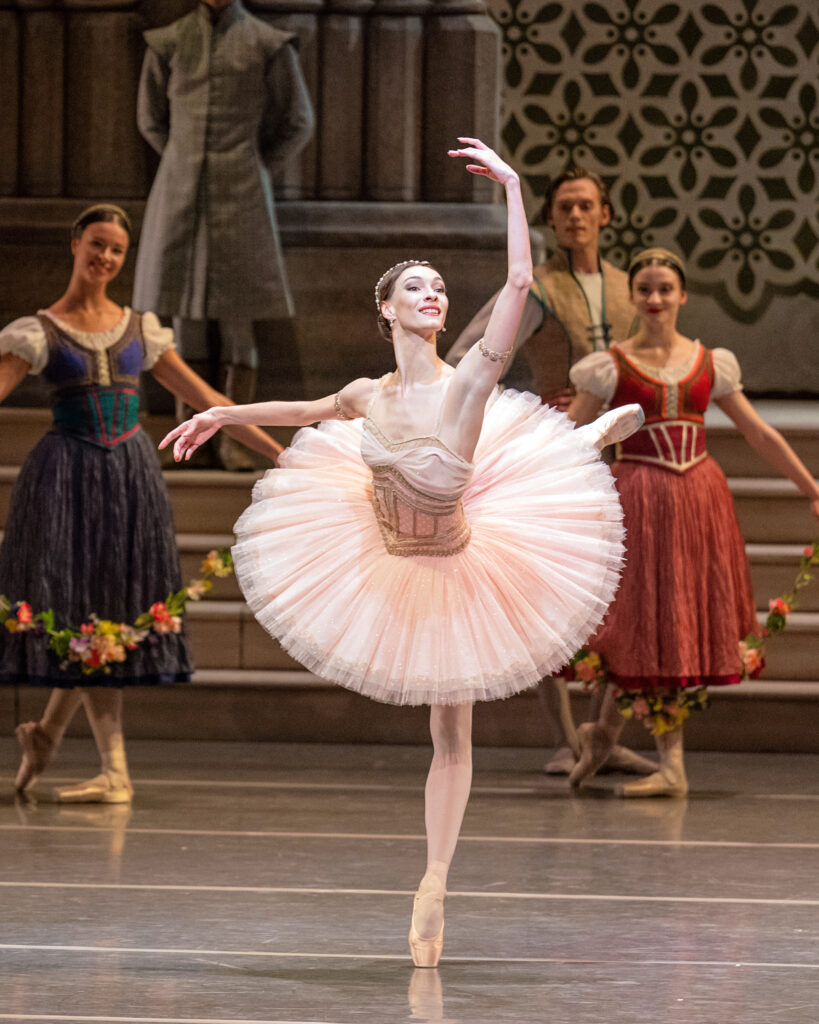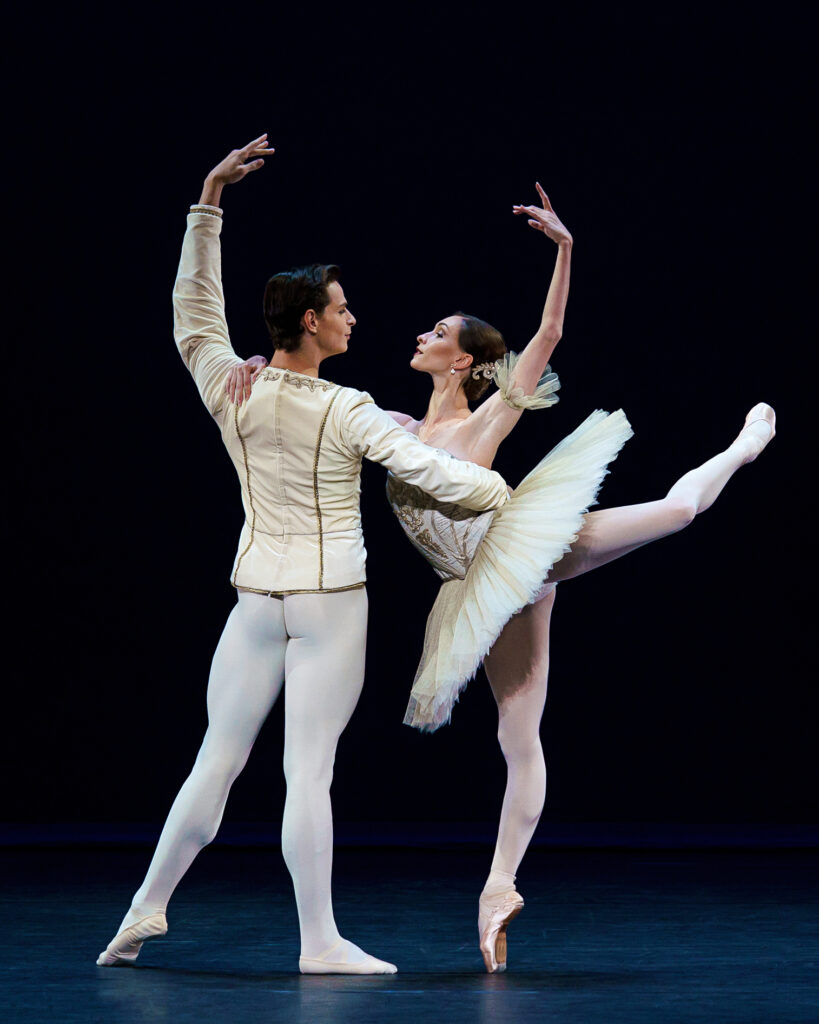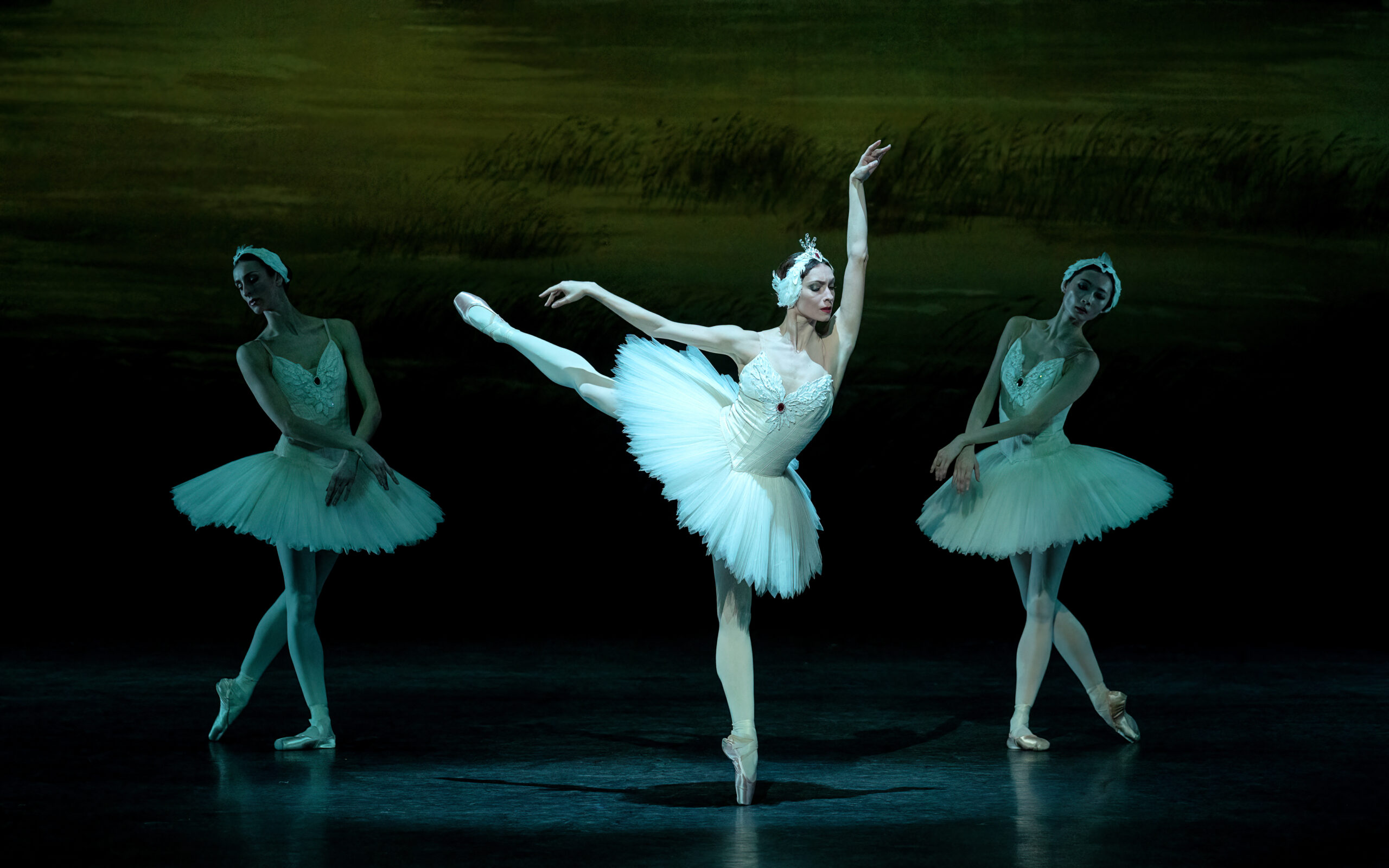Olga Smirnova on Leaving the Bolshoi and Finding a New Home in the Netherlands
For more than a decade, Olga Smirnova was one of the Bolshoi Ballet’s most recognizable faces. Coolly flawless in the Russian classics, she also became known as a choreographer’s ballerina, working with the likes of Jean-Christophe Maillot, John Neumeier, and Christian Spuck. The invasion of Ukraine in 2022 changed everything: Smirnova was the only Russian-born principal from the Bolshoi or Mariinsky to leave her country in protest, writing that she was “against war with all the fibers of my soul.” Now a principal with Dutch National Ballet and a regular guest artist with Les Ballets de Monte-Carlo, she had planned to perform in the U.S. this summer as Dutch National Ballet visits Ballet Sun Valley, Jacob’s Pillow, and The Music Center in Los Angeles, but has had to withdraw while recovering from injury.
How do you feel now, a year after the invasion of Ukraine and your departure?
Professionally, I’m settled down. I feel lucky and happy to be in Amsterdam and to be able to travel within Europe, to continue my good relationship with Jean-Christophe Maillot and Les Ballets de Monte-Carlo, and sometimes to appear in John Neumeier’s ballets in Hamburg. I’m really grateful to Dutch National Ballet director Ted Brandsen for this artistic freedom.

How does company life at Dutch National Ballet compare with Russia?
I love the system at Dutch National Ballet. It’s very well-organized and we have great facilities, so I can focus on just rehearsals and performances, without worrying about the rest. At the Bolshoi, if I had four or five days to prepare, even for a big classical ballet, it seemed like a lot of time. Here, I have this solid amount of time just to be in the studio, to feel really ready to go onstage.
What experiences have been the most rewarding in the studio so far?
Definitely working with ballet master Larissa Lezhnina. I adore her. We have the same background, the same school in the St. Petersburg tradition, so we speak the same language. She is really critical in the studio, and I like it. There is no end to the improvements you can make, and I completely trust her impeccable taste and knowledge as a ballerina. If she says it’s good, I can really think it was.
The Bolshoi released a statement in March saying that you had been fired after taking a leave of absence. What actually happened?
I left the company last year: It wasn’t a leave, it was smooth and clear. I think this was just the final, official document, but I don’t know why they decided to phrase it this way. It’s silly, but there are so many silly things. Now, if you scroll through past casts for the ballets I danced, there is an empty space where my name was. They probably think it’s revenge.
Were you surprised?
I’m a little bit upset, because I was really dedicated to the company. I was part of almost every premiere, and sometimes I sacrificed some of my personal touring because I understood that it was important for the theater. But I can’t change it.
How do you feel about the changes underway at the Bolshoi, as most Western choreographers now decline to come or renew the licenses to their works?
The 10 years I worked at the Bolshoi were such fruitful years. We had so many choreographers, so many premieres. I feel so sorry for the great, talented dancers who are in isolation now because they can’t go away. It’s a tragedy, although of course we cannot compare it with the tragedy of war.

Over the past year, do you feel like you’ve changed as a dancer and a performer?
Yes, definitely. We did Swan Lake recently at Dutch National Ballet, and, honestly, it’s not my favorite ballet. I never liked to be a swan. It is so well-known that it became almost like a touristic thing: Everybody knows it and you can’t feel the truth in Tchaikovsky’s music anymore. I did it technically, but it wasn’t close to my soul. Being outside of my country now—when you’re homesick, when you miss the culture, the music sounds completely different. I started to like this ballet as a whole, to feel and hear the tragedy.
Do you feel like you’ve been welcomed as an artist in the Netherlands?
For sure. I feel support within the company and from the administration. I was also part of a TV program in the Netherlands, and many people wrote to say they didn’t know that they actually liked ballet and wanted to come to performances. That’s my goal: to be a ballet ambassador.




